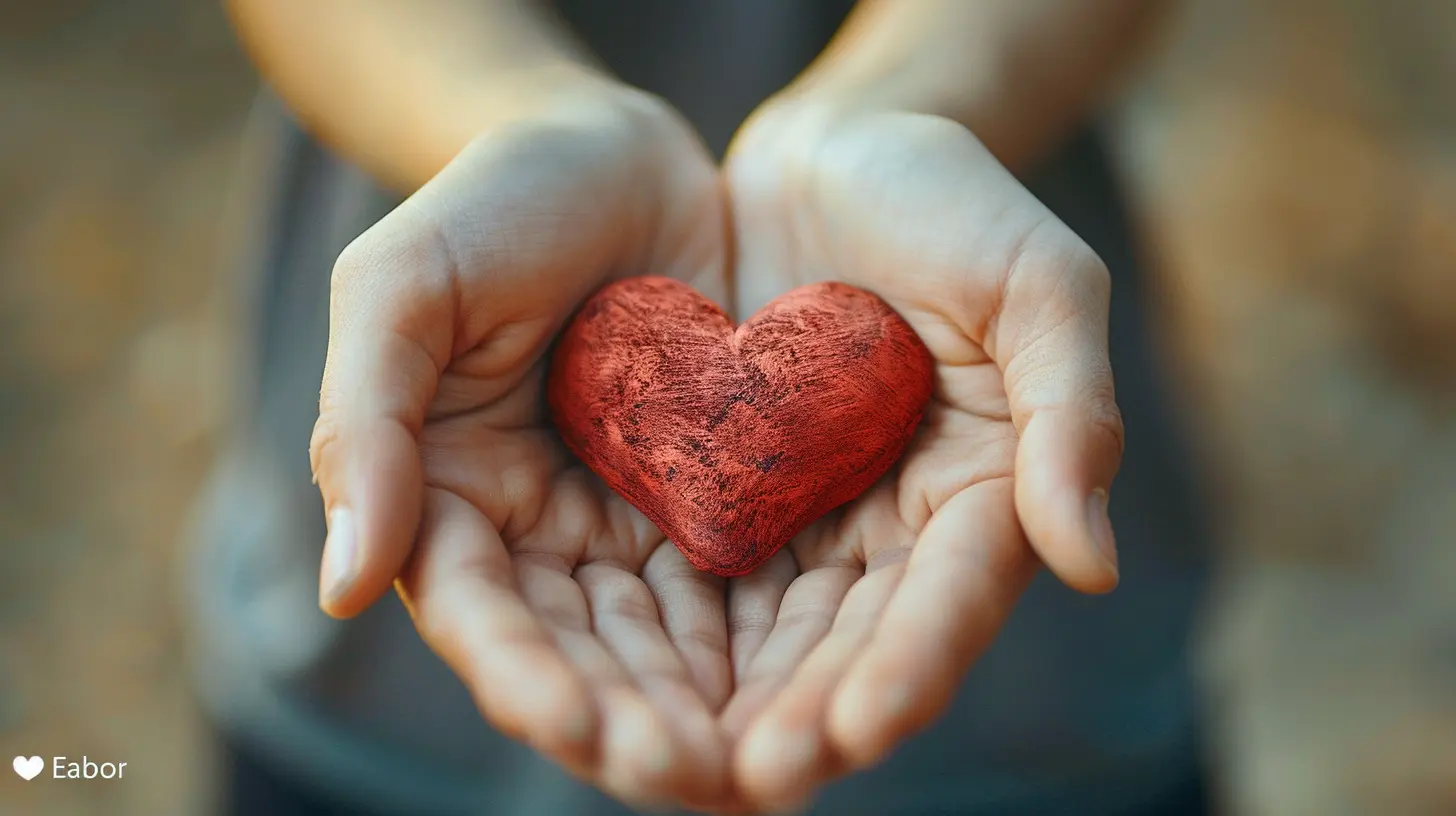The Benefits of Empathy for Personal Well-Being
14 October 2025
Ever felt like someone truly understood what you were going through? That comforting feeling of not being alone in your struggles—that’s the magic of empathy. It’s more than just a buzzword; it’s a superpower that can transform both your relationships and your personal well-being.
In today’s fast-paced world, where everyone is caught up in their own lives, practicing empathy can make a world of difference. But here’s the kicker—empathy isn’t just about helping others; it also has incredible benefits for your own mental and emotional health. Let’s dive into why embracing empathy can be one of the best things you do for yourself.

What Is Empathy, Really?
Before we talk about the benefits, let’s get on the same page about what empathy actually means.Empathy is the ability to put yourself in someone else’s shoes and truly understand what they’re feeling. It’s different from sympathy, which is more about feeling sorry for someone. Instead, empathy is about connection—feeling with someone rather than just feeling for them.
There are three main types of empathy:
1. Cognitive Empathy – Understanding someone else’s perspective.
2. Emotional Empathy – Feeling what another person feels.
3. Compassionate Empathy – Not just understanding and feeling, but also taking action to help.
Now that we’ve covered the basics, let’s look at how empathy can actually improve your personal well-being.

1. Boosts Emotional Intelligence
Empathy is one of the key components of emotional intelligence (EQ). People with high emotional intelligence tend to have better relationships, greater self-awareness, and an overall more balanced life.By practicing empathy, you become more in tune with both your own emotions and those of others. This helps you navigate social situations with ease, manage conflicts better, and even improve your decision-making skills.
Think about it – wouldn’t life be so much smoother if you could understand people’s emotions and respond in a way that fosters connection rather than conflict?

2. Reduces Stress and Anxiety
Believe it or not, empathy can be a stress reliever. When you’re empathetic, you create deeper, more meaningful connections with people. This sense of belonging and understanding helps reduce feelings of loneliness, which is a major contributor to stress and anxiety.Studies even show that helping others and practicing compassion releases oxytocin, also known as the "love hormone." This hormone reduces stress levels and promotes feelings of calmness and trust.
So, the next time you’re feeling overwhelmed, try focusing on someone else’s emotions. You might just feel a little lighter yourself.

3. Improves Relationships
Empathy is like the secret sauce of strong, healthy relationships. Whether it’s with friends, family, or romantic partners, understanding and validating others’ feelings can strengthen your bonds.When people feel heard and understood, they naturally trust and appreciate you more. It’s a simple yet powerful way to build deeper connections and avoid unnecessary conflicts.
Ever had an argument that escalated because neither of you felt understood? Practicing empathy can defuse these situations and create an environment where both people feel respected and valued.
4. Increases Happiness and Satisfaction
Helping others and showing empathy doesn’t just benefit them—it boosts your own happiness too. Science backs this up! Research indicates that acts of kindness and understanding trigger the brain’s reward system, releasing dopamine and serotonin—chemicals responsible for joy and satisfaction.Think about how good it feels when you do something kind for someone else. That warm, fuzzy feeling? That’s your brain rewarding you for your empathy.
5. Enhances Self-Compassion
Empathy isn’t just for others; it’s for yourself too. Being empathetic towards others can actually help you develop a kinder, more understanding attitude toward yourself.We’re often our harshest critics, right? But when you practice empathy, you start seeing mistakes and struggles through a more compassionate lens. Rather than beating yourself up, you begin treating yourself with the same kindness you’d show a friend.
6. Encourages Personal Growth
When you see the world through different perspectives, you grow—plain and simple. Empathy challenges your assumptions and broadens your understanding of human experiences.It pushes you outside your bubble and helps you become more open-minded and adaptable. This kind of growth leads to greater wisdom, resilience, and a deeper appreciation for life.
7. Strengthens Physical Health
This might surprise you, but empathy has physical health benefits too. Studies suggest that people who engage in compassionate behaviors have lower blood pressure, stronger immune systems, and even longer lifespans.Chronic stress and negativity take a toll on your health. Since empathy reduces stress and promotes positive interactions, it indirectly contributes to better overall well-being.
How to Cultivate More Empathy in Daily Life
If you’re wondering how to be more empathetic, don’t worry—it’s a skill you can build over time. Here are some simple ways to develop a more empathetic mindset:1. Practice Active Listening
Instead of just waiting for your turn to speak, focus on truly understanding what the other person is saying. Nod, make eye contact, and ask thoughtful questions.2. Put Yourself in Their Shoes
When someone shares their struggles, try imagining how you would feel if you were in their situation. This helps you connect on a deeper level.3. Show Kindness and Compassion
Small acts of kindness—like offering a genuine compliment or checking in on a friend—can go a long way in showing empathy.4. Read Books and Watch Stories About Different Perspectives
Exposing yourself to different life experiences through books, movies, and documentaries can help expand your understanding of emotions and human behavior.5. Be Mindful of Your Own Emotions
The more aware you are of your own feelings, the better you can relate to others. Self-reflection and mindfulness can help strengthen your empathetic abilities.
Final Thoughts
Empathy is a game-changer—not just for relationships but for your overall well-being. From reducing stress and increasing happiness to improving emotional intelligence and personal growth, the benefits are endless.So why not make empathy a daily habit? A little understanding and kindness can go a long way in making life richer, more meaningful, and a whole lot happier.
all images in this post were generated using AI tools
Category:
EmpathyAuthor:

Alexandra Butler
Discussion
rate this article
1 comments
Seth Gomez
Thank you for sharing this insightful article on the benefits of empathy! It's a powerful reminder of how understanding others can enhance our own well-being. I appreciate the practical tips and look forward to applying them in my daily life.
October 16, 2025 at 4:38 PM

Alexandra Butler
Thank you for your kind words! I’m glad you found the article helpful and hope the tips enhance your daily interactions.


